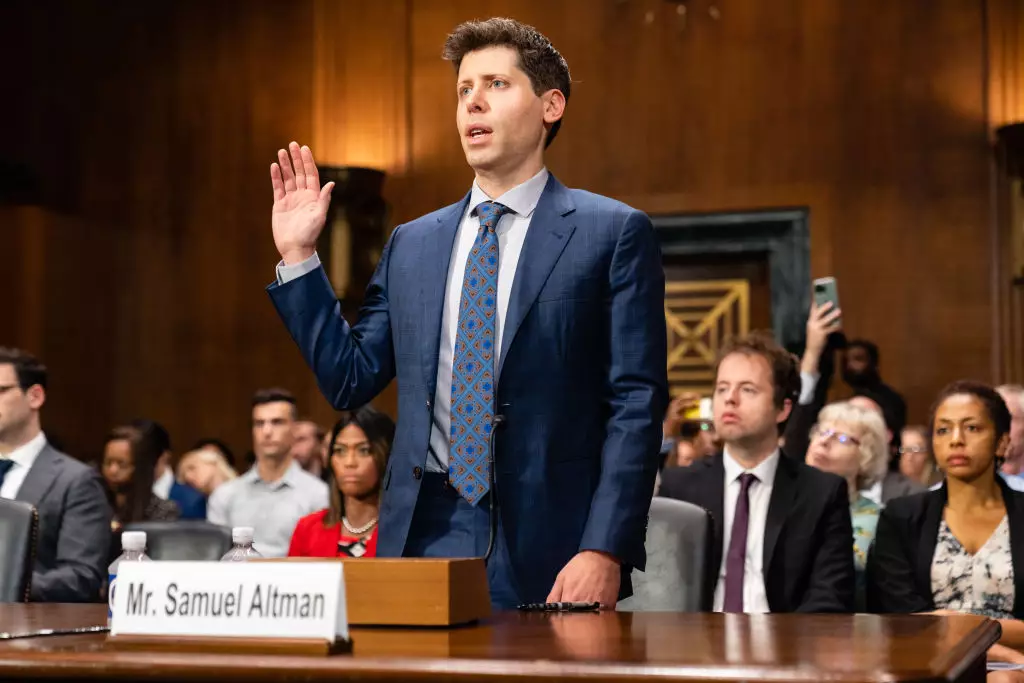The increasing complexity and relevance of artificial intelligence (AI) in today’s tech landscape has stirred significant corporate investment in lobbying efforts at the federal level. In a striking turn of events, reports indicate that 648 companies engaged in lobbying activities related to AI in 2024, reflecting a substantial increase of 141% compared to the 458 companies active in 2023. This uptick in lobbying expenditures is fueled by an environment characterized by regulatory uncertainty, highlighting the urgent need for companies to influence decision-making processes in their favor.
Among the entities actively lobbying for favorable AI legislation are industry giants like Microsoft and OpenAI. These organizations have thrown their weight behind pivotal legislative proposals such as the CREATE AI Act, which aims to establish benchmarks for AI systems originating from the United States. Meanwhile, OpenAI has lent its support to the Advancement and Reliability Act, a noteworthy initiative that seeks to create a dedicated governmental center for AI research. The dual approach of supporting legislation while simultaneously ramping up lobbying efforts indicates a strategic alignment between corporate interests and legislative outcomes in the AI domain.
The intensity of lobbying from AI-focused firms is noteworthy. For instance, OpenAI substantially increased its lobbying budget, investing $1.76 million in 2024 compared to just $260,000 the previous year. Similarly, competitors like Anthropic and emerging startups such as Cohere have also boosted their respective lobbying expenditures, reflecting a profound shift in how AI companies are positioning themselves within the regulatory framework.
Last year marked a pivotal period in AI policymaking, with over 90 AI-related bills introduced in Congress during the first half alone. At the state level, a staggering 700 legislative proposals emerged, signaling a robust engagement with AI governance issues at various government tiers. However, legislative progress has been sluggish at the federal level, with states often taking the lead in addressing emerging concerns.
Tennessee set a notable precedent by enacting protections for voice artists against unauthorized AI cloning. In Colorado, a risk-based approach to AI policy was put in place, while California Governor Gavin Newsom enacted numerous safety bills that mandated AI companies disclose their training methodologies. Despite these state-level advances, comprehensive regulatory frameworks comparable to those in the European Union, such as the EU’s AI Act, remain elusive. Governor Newsom even vetoed SB 1047, a bill that could have established significant safety and transparency measures in AI development.
The dynamics within AI governance are further complicated by fluctuating political winds. Recent actions taken by President Donald Trump demonstrate a strong inclination towards deregulation, which he believes will eliminate barriers to U.S. dominance in AI. Trump’s administration has been critical of initiatives aimed at imposing restrictions on AI, evident in his revocation of former President Biden’s executive order focused on mitigating AI-related risks to consumers and national security. Such policy shifts have raised questions regarding the future landscape of AI regulation and whether a balanced approach can be achieved.
Despite the prevailing pro-deregulation sentiment, there are calls from within the industry for a more structured regulatory approach. Notably, Anthropic has emphasized the importance of “targeted” federal AI regulation within the next 18 months, warning that the opportunity for proactive risk management is diminishing. OpenAI has joined the chorus, advocating for substantial government actions to foster an environment conducive to responsible AI development.
As we navigate this tumultuous era of AI regulation, the surge in lobbying efforts and legislative activity underscoring the competing interests of corporate and public policy goals cannot be ignored. The future of AI governance rests on the delicate balance between innovation and regulation. As companies continue to adapt their lobbying strategies to shape the narrative surrounding AI, the ultimate challenge will be to construct a governance framework that ensures safety, ethics, and transparency without stifling innovation. The unfolding landscape of AI legislation will require keen observation, as both corporate players and regulators must find common ground to harness the full potential of this transformative technology responsibly.

